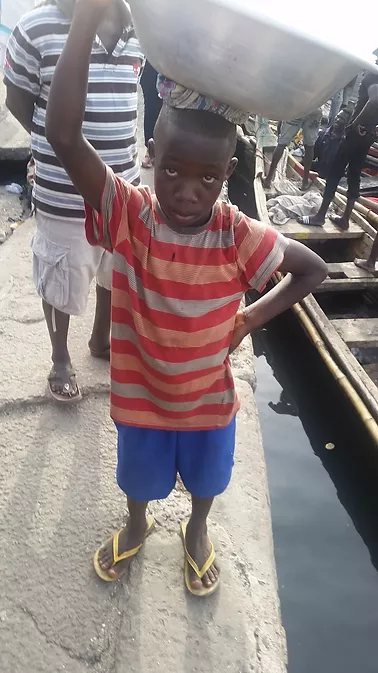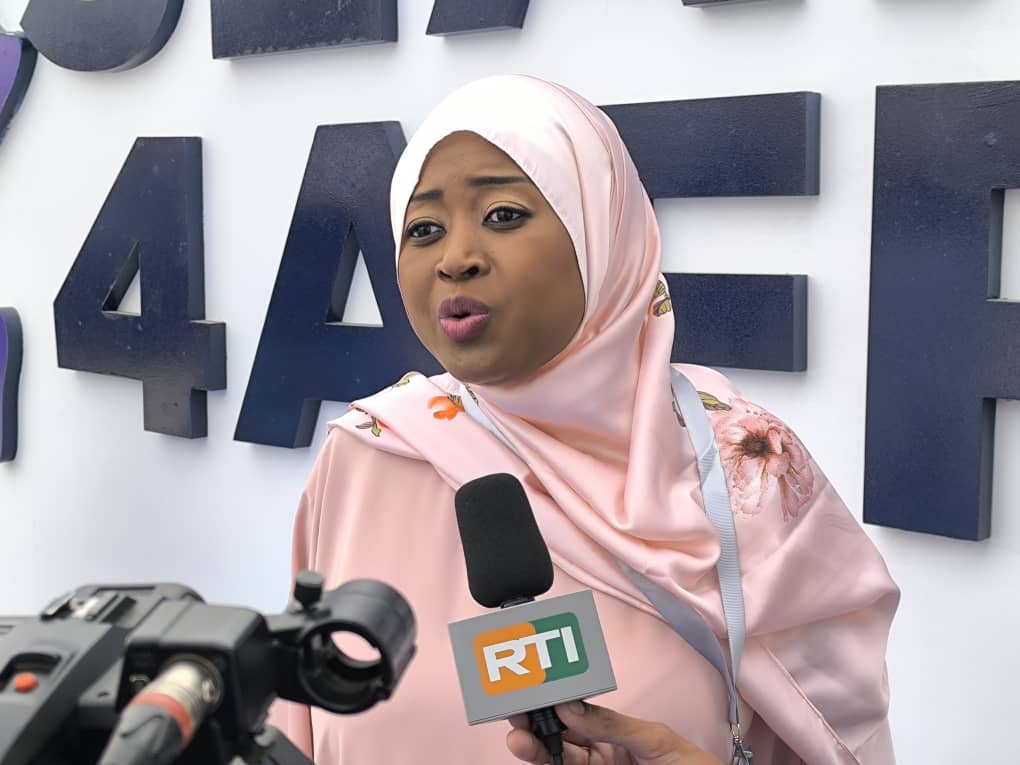Sub-Sahara Africa is at Extreme Risk of Further Poverty and Poor Nutritional HealthSchool-age Boy Selling Fish in Elmina. Photo: Allieu M. Shaw
Share

By Allieu M. Shaw
Africa is undoubtedly endowed with vast marine resources and mineral wealth sufficient to feed its people for many generations, yet many coastal countries in Africa live in dire poverty and millions of African children are hungry or are at risk for severe acute malnutrition. This deep poverty and related challenges leaves children and youth vulnerable to adverse health conditions that can significantly jeopardize their potential for healthy development.
In spite of the ocean wealth supporting a diverse economy with vast potential generated by African countries, the U.N. estimates that more than half of the total number of extreme poor people in the world (389 million people) live in Africa on less than $1.90 a day, and 97% of the 30 countries that are most at risk for poor nutritional health are in Africa.
The problem of poverty in Africa is exacerbated by ineffective and weak governance, the lack of transparency in the system, and by the fact that the symptoms of extreme poverty are disproportionately prevalent among women in rural communities who are the backbone of most African families.
According to the World Bank, countries along the Atlantic Ocean coast of western Africa (Mauritania, Senegal, Guinea, Guinea Bissau, Ghana, Liberia and Sierra Leone) offer a hospitable home to the richest variety of marine biodiversity in the world. The problem, however, is most of the capture from Africa’s coastal waters is landed on foreign sea ports through transshipment with little or no transparency or accountability to the stakeholders in Africa.
Marine resources are vital to Africa’s economy and makes significant contributions to food and employment security, and provide livelihoods to millions of Africans. Small-scale fisheries in Africa play a significant role of providing more than 60 per cent of protein intake for its people.
However, the fish stocks and marine biodiversity that provides most of the protein source has been overexpolited by illegal and unregulated larger foreign fishing vessels originating predominantly from countries in Asia and Europe that violate the Exclusive Economic Zone (EEZ) in Africa’s coastal waters. These vessels take advantage of countries that lack the mechanisms to detect and report IUU fishing within national and regional fisheries databases.

















